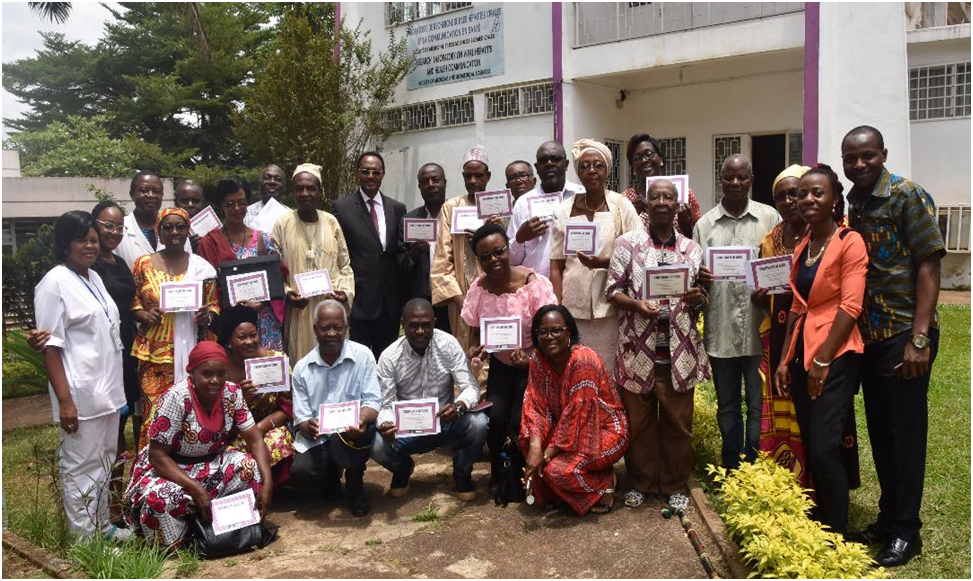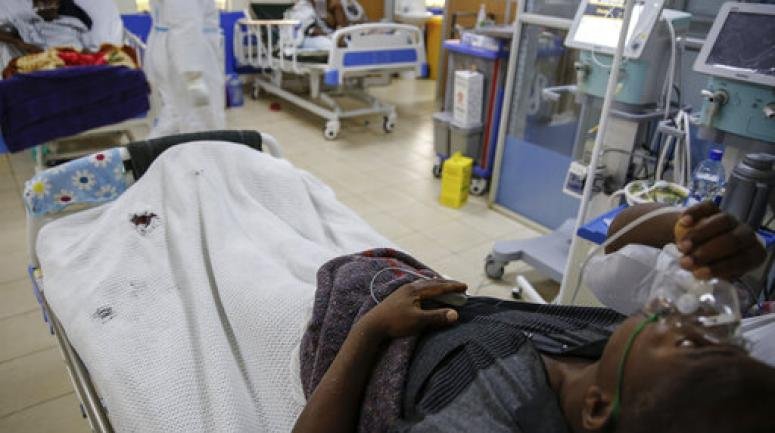
A recent study opens perspective for thousands of Cameroonians
An approximate 2000,000 Cameroonians suffer from chronic Hepatitis C. In Yaoundé, Professor Oudou Njoya (Faculty of Medicine and Biomedical Sciences of the University of Yaoundé 1) and his team treated a first group of patients with the newest antiviral medication available with great success: over 95% of patients were fully cured after three months of treatment. ‘’It’s now time for large scale testing and new financing models to make this treatment available for many more Cameroonians’’

Clinical team members, with some former patients, holding their certificate, confirming that they have been cured of Hepatitis C.
HCV is often undetected, meaning many people are unaware of the initial infection. Even though sometimes, the body clears the virus itself, unfortunately, when people do not receive treatment, HCV usually becomes chronic, causinguncurable liver failure and cancer.
Professor OudouNjoya cooperated with a group of scientists from the Netherlands led by Professor RoelCountinho. Theycoordinated the treatment of 161 patients. These patients wereidentified through six treatment sites, namely: The University Teaching Hospital; the Central Hospital; the General Hospital; the Military Hospital; the Essos hospital Centre (NSIF) and the Centre Médical la Cathédrale. This demonstration of the feasibility of treatment was conducted at the Faculty of Medicine and Biomedical Sciences of The University of Yaoundé 1 and at the University Teaching Hospital (CHU).
Most of the patients learned they were HCV positive at a blood donation.‘’This study is important Was it showed that HCV treatment with new antivirals can be done successfully, within Cameroon’shospital setting. However, treatment is one thing, identifying patients a second. Thousands of Cameroonians are unaware of their HCV positive status. We need the government to give opportunity for frequenttesting. As most people do not have health insurance, also new financing models should be implemented to support Cameroonians to pay for the treatment.’’
The research team already started a second and third round of HCV studies. The secondinvolves 300 HCV positive patients identified through blood bank screening. The third focuses on testing HIV patients for HCV infection. HIV patients co infected by hepatitis C virus generally show complications in an earlier stage. ‘’If diagnosing patients through the blood bank and HIV testing is successful, it can, and should be rolled out nationwide”








